|
The Thursday Thesis – 8/11/2018
When the tough cop Dirty Harry suggests that the freshly shot bank robber should ask himself “...do I feel lucky?” you might think Harry is just taking the piss: after all, the dude is lying in a pool of his own guts and blood while Harry - the bouffant-haired cop - stands over him toting a .44 Magnum. By definition, it ain’t the felon’s lucky day. But what is luck, anyway? I’d describe good luck as an innate tendency to attract positive situations, circumstances, people and things into one’s life. Bad luck has the opposite effect. So what about you – do you feel lucky? Ask yourself if you are lucky, neither lucky or unlucky, or plain old unlucky. There’s no right or wrong answer, but your answer is important because you’re going to need a baseline of how lucky, or otherwise, you are right now. You’ll need that baseline because – from today – you’ll know how to be lucky, every day of your life. How would you like to be lucky every single day of your life? Suppose I told you that there is a way to be lucky – how suspicious would you be? Would your bullshit radar start bleeping, 8 to the bar? Mine would! Don’t take my word for it, have a gander at the work of Professor Richard Wiseman, an English psychologist, who set up a study of more than a thousand people, that lasted 10 years. According to The Prof, luck isn’t anything unusual or supernatural; neither is it a gift – it’s a mindset and a behaviour. So, chuck out your lucky rabbit’s foot, your four-leaf clover and your lucky horseshoe, and check yourself in to the School of Luck. Wiseman’s study divided its subjects into three groups:
Then the fun started... Across a variety of tests, the Lucky People consistently spotted opportunities which were only spotted half of the time by the Control Group, and which were spotted rarely by the Unlucky People. After much testing and thinking, Wiseman concluded that Luck was really the combination of four key factors: 1: He thinks that Lucky People create and notice opportunities. They are optimistic and curious, open to possibility, and see opportunities everywhere. Furthermore, Lucky People tend to be sociable, outgoing, helpful and likeable. They are attractive to other people, and their helpfulness generates reciprocation from others. That’s why Lucky People always seem to know the right people – they simply know more people and those people know them in a positive way. Unlucky People were more pessimistic and less sociable, helpful and less likeable. It seems common sense that you’re not likely to meet the person of your dreams or have that life changing idea if your are uninterested, holed-up in your room for days on end, and don’t experience much in the way of real human contact with a number of people. Maybe this is why stroppy teenagers who live online think that they are unlucky and life is unfair? 2: According to Wiseman, Lucky People make lucky decisions by trusting their intuition and instincts: They trust themselves and their decisions much more than Unlucky People do. Consequently they are much more likely to make any decision and take action on that decision, which naturally increases the likelihood of a positive outcome. This conclusion of the study is just another way of saying “make a bloody decision and get to work” and “trust your gut” – two very old ideas that still hold true. 3: Wiseman’s study concluded that Lucky People create self-fulfilling prophecies: they know what they want and make plans to achieve it, based on their idea of what should happen. This is no surprise to anyone familiar with the vast body of research on the effect of goal planning because Wiseman’s idea of the self-fulfilling prophecy is really the common sense idea that a person with a plan will achieve far more than a person who has no plan at all. 4: Finally, Lucky People are resilient and turn “unlucky” events into “lucky” outcomes: which is another way of saying that Lucky People are determined, resourceful and are able to see the positive potential in any situation. Again, none of this is news: the annals of history are full of the stories of people who experienced unfortunate events but who were able to transform that event into the springboard to greatness, fame and fortune. So, all in all, the science seems only to re-state a few unfashionable old ideas that our forefathers knew:
I’m not sure if we really needed a ten-year academic study to verify that Luck is really nothing more than a placeholder word for these qualities and processes, but Professor Wiseman has sold a mountain of books based on his research – the lucky bastard! For a fuller read of Wiseman's findings, get the book here: https://amzn.to/2RKmNPE
0 Comments
The Thursday Thesis – 1/11/2018 Last episode you read about the difference between zero and one - the biggest difference you can imagine: the difference between nothing and something. You may recall that going from zero to one is absolute, but going from 1 to any other number is just a difference of quantity. I know that going from zero to one takes balls of steel, whilst going from 1 to 2 to 3 is easier, because you’ve done it before and it will be easier next time. But following someone else’s pathway to success is altogether less scary. Ever hear of Conrad, Gordon and Bean? They’re not a law firm, they’re the crew of Apollo 12, and you’ve never heard of them. You probably remember the name Neil Armstrong, but who was that other bloke in the Apollo 11 Lunar Module...Buzz something or other...Lightyear?...no...it’s gone... If you believe that NASA managed to put a man on the moon nearly 50 years ago – something they can’t do today because they have ”...lost the technology” - think of the difference between the first mission (Apollo 11) and the second mission (Apollo 12). Apollo 11 proved the concept, Apollo 12 merely reiterated it. Another great first was the Four-Minute Mile and Roger Bannister: once RB proved it was possible, how many more sub 4-minute miles were there that year? Well, just one actually – John Landy. “John who?” I hear you ask... Since Bannister’s breakthrough, hundreds of other runners have clocked a mile in less than four minutes. It’s a great achievement, but they all followed Bannister’s lead. And that’s my point: whatever you want to do, just have a look around and see if anybody else has already done it. If somebody has already done what you plan to do – get rich, lose weight, write a book – whatever it is, you have a precedent. Success, as they say, leaves clues. One of the smartest things you can do is look at someone who is already successful in your area of ambition – a role model or mentor – and once you have found, get busy digging. Find out how they managed to become successful, find out what they did, how they thought, what their beliefs were. Then steal their best ideas to help you get what you want by taking consistent action that moves you in the direction of your desired outcomes. There is an abundance of wonders in the world, opportunities are everywhere and there is plenty to go around. The pathways to success criss-cross the world, they are the biographies, books, teachings and wisdom of people who have achieved their own version of success. Hidden in plain sight, in the multitude of bookshops and libraries, online archives, podcasts and teachings are the pathways to your own success – there, right under your nose. You don’t have to be the first to be successful. In fact, there may be a reason why nobody has done it before. But if you can find anyone who is crushing it in your field, watch and learn; read and understand, listen and assimilate. Success leaves clues. © Neil Cowmeadow 2018
Please Like and Share The Thursday Thesis with your friends, family, your cat, unicorn and anyone else. I’d love to hear your comments, along with any ideas you’d care to hurl at me. Neil@cowtownguitars.net The Thursday Thesis - 25/10/2018
Two years ago, today, I bought my first investment property – Happy Birthday to me! As the completion date approached I was edgy and nervous: at that time I was terrified of taking money out of the bank to invest in a house I wasn’t going to live in. Deep down I sorta-kinda knew my limited knowledge of property investing increased my risks, but the stubborn part of me was seeing it through, no matter what. The truth is that fear had me in its grip and I almost pulled out of the deal at the last moment. And when the deal was done and my bank balance was emptied, fear rushed in to fill the hole. That fear got a lot of attention from me, so it should have been no surprise that it stayed around, stinking-up my thinking for weeks. But something had changed: me. Doing that first property deal moved me from Zero to One; flipped my mindset from “I want to...” to “I do...” Your first guitar lesson willl be the very worst, ever - you'll never be that bad again, I promise. And that's because the difference between zero and one is the biggest difference you can imagine. It’s the difference between nothing and something. From 1 to any other amount is just a difference of Quantity: zero to one is a difference of Quality - it is a fundamental change of nature. Going from 1 to 2 to 3 is easy, because you’ve done it before and it will be easier next time. Going from zero to one takes balls of steel, because it is virgin territory and you’ve never been there before. The difference between zero and one is absolute: it is the shift from infinite nothingness to finite somethingness. After that, it’s just a process of refinement. That’s why Episode 1 is the hardest, why your first child is the toughest, why the first deal is the most fearful. The first time for anything is usually terrifying – think of the first time you had sex!! The fear didn’t stop you trying it though, did it? Armed with the certainty that you were SO not a stud or a total sex-kitten, you still went for it, didn’t you? And you’re worried about your first poem, book or deal? If you’re looking to do a business deal, first reconcile yourself to the fact that your first deal will be abysmal, the second one will be a little less bad - just north of Shittsville – and your third deal so-so: the fourth might rise to the dizzy level of OK. By the time you are 5 or 6 deals in, you’ll know what to do, based on experience and a trail of cock-ups and disasters. You’ll learn faster by doing it than by waiting, learn deeper from experience, and have light-bulb moments and flashes of inspiration along the way. If you are learning to play guitar, your first chord or riff will be bloody awful, but you are a guitar player from the moment you pick up the guitar and play your first bum-note. And what’s most important is that you’ve done it, for real. You cannot deny that you are the genuine article, since your first deal is incontrovertible proof. It’s that concrete, that simple – that easy. The fundamental transition from Zero to One is the greatest possible change: after that, all that changes is the size of the numbers. So trust me on this: whatever it is you want to do, whatever it is you want to become, learn or begin – begin it. The first step, the first deal, the first chapter will be dreadful, but it will change you from a Wannabe to a Gonnabe, and the second step, the second deal and the second chapter will be better... And you will have become the person you wanted to become. Have a Fantastic Day! The Thursday Thesis - 18/10/2018
The seminar was about to close and the delegates began to fidget, eager to gather up their folders and bags before heading out on the long drive home. The speaker had been an absolute barnstormer – boundless energy and charisma from beginning to end: he had everyone fired-up and ready to bench-press the World. “Remember to drop all your notes and folders in the bin on your way out!” he called, grinning, as we filed out. I approached the stage and shook hands with him, thanked him for an inspiring experience and asked him what he’d meant by that comment about notebooks and bins. "It’s kind of a joke, except it isn’t”, he said. “You see, most of the audience will never open their folders or notebooks ever again – they leave, and it’s over. Nothing happens for them because they don’t take action. As good as my stuff is, and as passionate as I am about helping people, most of them will do precisely nothing with what I’ve shared with them today: it’s really sad.” The two-day finance seminar had been the easy part: the hard part lay ahead of us all. What I’ve learned over the last two years is this: to really get maximum value from a course you must pay for it twice. First there’s the easy part – the cash and time investment in the course. Whether you spend a few pounds on a book or tens of thousands to hire the best mentor you can find, there’s an investment of money involved. Then there’s the time – in the course or seminar and travelling to and from it.. Once you’ve paid your “Entry Fee” you have to get busy paying all over again. And this is the hard part, because this time you are going to have to pay for it with a lot more of your time – the most precious of all your resources. Within the Personal Development industry there’s a saying that goes “The people who take the courses take ALL the courses”, and there’s a lot of truth in that. “Course junkies”, as they are known in the trade, stride purposefully from venue to venue rather than take meaningful action in the direction of their dreams. All too often, Course Junkies delay action until they’ve finished the next course. Inevitably, once that course is completed, there will be another course that is essential before they unleash themselves... So, when I next bump into that guy from the ABC course at the XYZ conference, the chances are he’ll grimly tell me he’s no further down the road than he was at ABC, six months previously. I’ll try not to look surprised. He’ll doubtless marvel at the work I’ve put in and the small amount of progress I’ve managed in that same six months – possibly he’ll tell me I’m “lucky” that my hard work has paid off. This “Lucky” business makes my teeth itch with rage, because luck has very little to do with success, as far as I’ve been able to discover from researching successful people, their live stories and business book. “The harder I work, the luckier I get”, as the old saying goes. In other words, they work hard and prepare for when opportunity shows up. Luck is an opportunity wearing working clothes. What I’ve noticed about the many courses and seminars I’ve attended, the webinars I’ve sat through, the Expos and Fairs I’ve spent precious time walking around is this: the vast majority of attendees do absolutely nothing as a consequence of taking the course or attending the event. This is very good news for me, and it’s all a matter of simple math. Only around 3% of the population voluntarily take part in personal development of any kind. Yep, less than 1 in 20 of the people around you and I will ever set foot in any kind of Personal Development or educational seminar. And here’s the really amazing part of what I’ve been able to discover: of that tiny minority who actively do any kind of Personal Development training, only around 8% will take meaningful action based upon the course or seminar. So, 3% show up, and 8% of them execute, which gives me a ball-park figure of 0.0024% of the population investing in themselves and then taking action on what they’ve learned. That’s also why you and I shouldn’t worry too much about competition – because there’s not much of it around, when you stop to think about it. © Neil Cowmeadow 2018 Please Like and Share The Thursday Thesis with your friends, family, your cat, unicorn and anyone else. I’d love to hear your comments, along with any ideas you’d care to hurl at me. Neil@cowtownguitars.net The Thursday Thesis - 11/10/2018 Every so often I like to find somewhere remote and quiet to just sit and think; to plan the next few months – what to do, when to do it, and make sure I was doing it for the right reasons. I ask myself one of life’s great questions - which I got from Gary Keller’s book “The One Thing” (link at the bottom of this post), here it is... What's the ONE Thing you can do such that by doing it everything else will be made easier or unnecessary? My normal response is to scratch my head, adjust my headphones and make my pen start to move on the paper, brain-dumping all of my current and potential projects onto the page so that I could see them and objectively assess them. There are easy and fast projects, challenging and slow projects, and overwhelming projects which could take the rest of my life to complete. But now I have the buggers on paper I can begin to eliminate the low priority/low return projects, along with the ones that did not fit with my Vision of how I want the rest of my life to pan-out. Last time I did this I found my One Thing – and it’s the same One Thing that I had twelve years ago. Yep, 12 years on and I still haven’t finished version 1.0 of my project. I have three bulging lever arch files crammed with my notes, but nothing even close to a draft. What an arse! So I started brain-dumping my key ideas onto my yellow pad, line after line of Deep Magenta ink filling 8 pages of bullet points and sketches. It’s a mess, but the mess is marking the places where the good stuff will go, and the few bits of good stuff are already done. I am certain that speed is the key in these scenarios: you have to write fast enough to outrun your fear. Over the next few weeks and months I’ll re-write and fettle those notes, expand those bullets and pay somebody else to draw the pictures so that another human being can make sense of them. I will complete my “Shitty First Draft”, my SFD 01. Then the fun really starts! By the time I’ve been through SFD 1 a few times, edited it, stripped out the clunky parts and sharpened things up in SFD 2, SFD 3, and probably SFD 4, it will be tidy, ready for formatting and the day when I finally get out of my own way and hit the big scary button which says “PUBLISH”. Once that’s done I’ll ask that great question again: “What's the ONE Thing you can do such that by doing it everything else will be made easier or unnecessary?” and burn through another yellow notepad. Keller reckons that we must focus on, and do, only our high-percentage stuff – the things which matter most. It’s commonplace for people to spend too long perfecting things which are low-percentage activities and pay the price in lost opportunities. There’s not enough space on the internet for me to ‘fess-up to all of the low-percentage things I’ve wasted years on; for now I’ll just mention that I played nothing but “Smoke on the Water” for months when I began to learn to play guitar. That’s low, low, low percentage stuff, but I was just a kid then, and I honestly, sincerely, truly - cub’s honour - NEVER play that riff now. As a guitar teacher, I always start with the highest-percentage stuff first. If the student gets that in place first, a great deal of what follows will be a smooth progression towards their goals: without it, every week will be tougher than it needs to be, every new skill will be slower and harder to acquire, remaining less secure for longer. In every field of endeavour there are high-percentage and low-percentage activities. It doesn’t matter if you are young or old, employed in a job, working for yourself, or not working at all – figure out which activity is your most important, the one which – once completed – will make everything else easier or unnecessary. Deep down, you probably already know what it is already, don’t you? It’s the elephant in the room for most people; I know it was for me. When things matter most, we tend to skirt around them, because they’re too big and scary to tackle, despite us knowing that they are vitally important - crucial to our hopes, dreams and goals. Are you nodding, right now? If so, you might want to grab a pen and paper and start jotting down all the “stuff” you would like to get around to one day. Which one of them scares you most? That’s probably the thing that matters most and which could make the most difference. I don’t claim to know what your high-percentage stuff is, but you know what it is, don’t you? Here's the link to Gary Keller's book: https://amzn.to/2OjzmnR © Neil Cowmeadow 2018
The Thursday Thesis - 4/10/2018
My friend gushed about her upcoming podcast, about how awesome it was going to be, how good her guests were going to be, how crisp and clean her audio was going to be, and once she’d got that nailed-down... Spot the pattern? This lovely lady didn’t need a better microphone, she didn’t need a new recorder, the very best guest, just to get things started with a bang: she needed to let the handbrake off and start moving. I see this all the time – people are afraid to start doing their Epic Shit because they:
Sometimes they’re just plain scared. I see those people, because I’m one of them! And all the time, we are feeling worse because we see people who are not as good, bright, insightful or talented as us making progress. How dare they do that – they’re nowhere near as good as we are, and we’ll show them, just as soon as... It’s like we’re sitting at the traffic lights of life in a hot car, maybe it’s a Lambo or a Ferrari, the engine is purring, eager to respond to the slightest twitch of our right foot. In our mirrors we see a little old man on a clapped-out, 50-year old Honda Super Cub moped slowing down to wait for the light, too. No problem, we’ll leave him eating our dust, won’t we? When the lights change we dump the clutch and stall the car, having forgotten to release the handbrake. We watch in disbelief as that clapped-out Honda lurches past us and pootles off down the road. And did we hear somebody shout “wanker!” as they passed our window? This is the moment when we decide that a Bigger Engine is the answer. Our Bigger Engine might be a higher dergree, a course, an internship or a mentoring program – all of which will give us more knowledge and thus, more power to apply to our sticking-points. We're convinced that we need that extra horsepower before we can move an inch. But more horses - more courses, more degrees, better mics and better guests - won’t move you or me a millimetre, unless we release the brakes. Nothing happens until we learn how to take that bloody handbrake off!! Until we do that we’ll remain stuck at the traffic lights in our Lambos - waiting, waiting... We have “All the gear, no idea”, as the saying goes. We are impatiently waiting to be perfect before we begin: wanting to perfect – right out of the box. And as we wait, our Lamborghini slowly rusts around us, the gas-tank runs dry and the engine falls silent. Whilst waiting to be ready, the clock runs out. We may die with our song still inside us, our greatest work a prisoner on our hard-drives or trapped in the labyrinth of our minds. Imperfect action beats waiting to be perfect, every time. Rob Moore says “Start now, get Perfect Later”, and he’s right: I’ve used that phrase for decades: with guitar students, coaching clients and mentees, trainee croupiers and friends. Do it badly, at first, but do it. I promise you that you’ll never be this bad at it, ever again. It will get better, you will improve. Start Now. The Thursday Thesis - 20/09/2018 Every so often we see something in a new way: our perspective imperceptibly shifts, snapping issues and puzzles into pin-sharp focus. You probably know how it feels, because we all have moments of clarity and revelation: problems evaporate, conflicts ebb, and our way is clear at last. It’s that sudden “Aha!” moment...when you and I “get it” and know that we can never go back to our old ways – that’s what I’m talking about. I had one a while ago – a massive, punch-you-in-the-face “Aha!” moment – at a seminar for entrepreneurs. The speaker was talking about the perennial fear of failure that everyone has. He told us his story of having a great idea for his business but holding back from getting started. He was afraid that it might not be perfect and the business would fail, exposing him as a nincompoop and proving right everyone who had told him he’d never amount to anything. Perhaps you can relate to that fear? Despite being a successful serial entrepreneur with multiple businesses which earn him millions of pounds, he is still subject to the fear of failure. He encouraged everyone in the room to take action on the business they wanted to start, on that great idea they’d had. And, as he talked, he drew a little picture that explained something with a clarity and precision that I’d never quite had before. He started with a big square, then divided it into four smaller squares, forming a 2 x 2 matrix. Above the left column he wrote “your stuff doesn’t work”, and above the right “your stuff works” – nice and simple. Then he wrote next to the top line of the grid “you don’t try”, and next to the bottom line “you try”. Then he said “if you stay in the top line – where you don’t try – then it make no difference if your stuff works or not, because you will fail by default”. He drew thick black crosses into the two squares of the top line. Then he continued, his voice punching the message into my ears “Only in the bottom line can you win. If your stuff doesn’t work at least you know it doesn’t work: you can either improve it and make it work, or you can move onto something else that could work”. He drew a black cross in the bottom left square, paused and said “But if your stuff works, you get a “YES” here in the bottom right square”. That was when the penny dropped: only when you try can you have a chance to achieve. The possibility matrix brought it all home with a clarity and force that had me speechless – I “got it” like I’d never “got it” before. I think it was the absolute certainty of the top line that did it; the 100% certainty that if I never tried I couldn’t win. There was no room for doubt in the starkness of that top line: not trying was the very best way to guarantee failure – how had I never seen it so clearly before now? And that bottom line? Well, that just looked like a coin toss – heads or tails – and if I called it right I could keep the coin and flip another coin. If I called it wrong I could flip the coin again, over and over, with an infinite number of coins. But only when you try can you ever do anything. I’m constantly using this idea when teaching guitarists to improvise: often they are afraid of playing a wrong note that they are paralysed into absolute silence – unable to play any notes at all! They’re stuck in top-line thinking, and my job is to move their thinking into the bottom-line, where there is at least a chance of success. And I’ve come to understand that that’s what life is all about – giving ourselves a chance to succeed, but that can only occur if we are prepared to try. We must be prepared to risk failure in order to give ourselves a chance of success. Please Like & Share The Thursday Thesis - it's sure to annoy someone!
The Thursday Thesis - 13/09/2018 Did you ever see one of those old Road Runner or Bugs Bunny cartoons? You know, the ones where a character flies off a cliff and pauses in the air as the full force of their situation hits them...just before they plummet earthward? There’s a bemused look of incomprehension that they wear just before there’s a loud “P’tyooooh!!” sound... That’s how it feels when you’ve finally completed one of your massive goals – one of your life’s great ambitions. You’ll have had a story in your mind of nailing your big thing – of taking the medal or lifting the prize - but you probably won’t have created a story for what you were going to do after you nailed it. I had that feeling when I finally published my first book “9 Weird Things Guitarists Do - The Common Myths & Misconceptions that Poison Your Playing - and How To Defeat Them” back in 2016.For months I’d written and edited, edited and written, refined and tweaked it until it was as good as I could get it. I’d striven for perfection, but ultimately decided that imperfect and done was better than perfect but never published. Man, I felt like I’d just bench-pressed the whole damned World when the book went live and began to sell on Amazon. But with the book published and my box ticked, I began to drift; a curious aimlessness set in on me as I failed to begin the next book straight away, in order to sustain my momentum as a writer. Of course, I still had this blog so I could con myself into thinking that I was still being productive, and I began to invest in property at around this time, so I wasn’t being lazy or slacking-off – honest, Guv! So what happened? The best way I can make sense of it is that I’d simply ran out of story. I had a plan to write the book and to publish it, and that was great – except it was also what was wrong. My story only took me as far as it went, and as soon as I reached that point everything stopped. Of course, I should have started to write the next book as I completed 9 Weird Things, and I should have planned to continue with the same daily ritual of writing 500 words per day. I should have written it, but I didn’t – not for a while. And – for the record - this world doesn’t deal in shoulda, woulda or coulda, because it’s too busy and too indifferent to listen to you and I making bullshit excuses for our cluelessness pleading to be let off, just this once. Ditto for completing my first marathon: I ran the course, sauntered over the line and promptly ceased to run for several weeks. My story got me to the start line and over the 26-and-a-bit miles, but after that – nothing. Zilch, nada, bugger-all, zip, squat. Now you’d be forgiven for thinking that I’d know better than to let my plan peter out as I crossed the finish line – but that’s what I did. I’m not an isolated case of stupid, either, because we all run out of story unless we have a plan that extends beyond successfully achieving our goal. Whether you’re getting married, running a marathon or playing a new song on your guitar, you’d better have a story that continues after the event is over. If you don’t have an ongoing story, all you’ll have is a sudden and unpleasant sense of running off a cliff-top and finding that the emptiness beneath you isn’t pushing you up. “P’tyooooh!!” won’t be far behind. So ask yourself, as you head off towards your Big Thing – “what are you going to do after you get there?”, because loitering in mid-air is not an option, trust me. Please Like & Share The Thursday Thesis - it's sure to annoy someone!
The Thursday Thesis - 30/08/2018
The Thursday Thesis - 09/08/2018 Say the words “I am” and your entire nervous system stands to attention. Tell me what you do and I’ll likely drift off to sleep... It’s a funny thing, but when you think of those two statements the chances are that you’ll conflate them down to being the same thing – even though they are chalk and cheese to anyone interested in making changes to their lives and behaviours. Here’s why they are different: “I do” is an activity statement, whilst “I am” is an identity statement. Whenever we say that we do something we are just talking about an activity, a behaviour pattern: it’s just something we do. For example, when someone tells me that they play guitar, they are telling me what they do. This is different to when someone tells me that they are a guitarist: in this case they are telling me that playing guitar is a vital part of who they consider themselves to be. The same goes for a person who repeatedly puts lighted cigarettes in their mouth but wants my help to stop doing it. The subject who tells me that she “...is a smoker” or says “I am addicted to cigarettes...” has made smoking a part of who she believes herself to be. Making a change to her identity will be challenging and painful (for her) because it places her sense of self under threat: we all fight like demons to preserve our sense of self and what is right and proper for us. Contrast this with the same person who says “...I smoke 20 cigarettes every day” or “...I have a smoke at break-time when I am at work”. This person is recognising – probably below the level of her conscious awareness – that smoking is just something she does. In this case smoking is not part of her identity, so change will be easier to implement and maintain because it conveys no threat to her sense of self. So what? Here’s the cool part: if you consciously make the things you want part of your identity, they will feel much easier to accept into your life and to integrate with other aspects of who you feel yourself to be. Likewise, changing your unwanted behaviours can be made easier by de-coupling them from your sense of self. Both of these routes are driven by language patterns and your sense of identity; simply changing the words nudges your behaviour either towards what you want or away from what you don’t want, and this is one of the reasons why daily journaling, affirmations and goal-setting are so effective. The daily re-statement of desired outcomes, statements made in terms of our identity, realigns our sense of who we are and what is right and proper for us. In essence, we believe the lies we tell ourselves about who we are and how the world is. Try this for yourself, right now: say out loud “I am a singer”, and just notice how that feels, deep down inside... Now say “I do sing, from time to time” and notice how that feels, deep down inside of yourself. There’s a big difference between how those two statements make you feel. Unless you are already a singer, the “I am a singer” statement will probably feel bigger, more significant and more uncomfortable that the “I do sing...” statement. After all, singing is just something you do, isn’t it. This is why we resist the thing we want, rather than integrate it into our identity and do it more whilst having more fun along the way. And here’s a little sidebar to stir into the mix: some people will add a situational qualification to their behaviour and constrain it to a place or time when it is acceptable – for example, singing might only be OK when we are in the shower, driving the car, or when nobody else is at home. So what do you say about yourself, and what does that say about you? I used to say (jokingly) that I was a good guy who did bad things – just to even things out. The problem is that my tiny, pea-sized brain doesn’t have a sense of humour and interpreted the joke as a mission statement, with disastrous and life-changing consequences. D’oh! Now I remind myself that I’m a good man who does good things. And it’s getting better. Everything begins with a single thought...
© Neil Cowmeadow 2018 Please Like and Share The Thursday Thesis with your friends, family, your cat, unicorn and anyone else. I’d love to hear your comments, along with any ideas you’d care to hurl at me. info@NeilCowmeadow.com The Thursday Thesis - 02/08/2018
Episode 109 - No, Yes But, Yes And...
The Thursday Thesis - 26/07/2018 All I suggested was that we should go out for a coffee, so how did we end up here – flying a hang-glider over the snow-capped mountains, in search of owls? It must have been something I said, or she said, or both... Yes, I was on yet another course – learning more interesting “stuff” to add to the rag-bag of other people’s brilliance and the random churning of pig-headedness that pass for my mind – and now that what I learned there has been stirred into the melange and fermented... I was told to ask my play-buddy out on a first date, and we were instructed by the course leader, Claire, to answer each other with the word “No...” and then our reasons why not. It didn’t go well: within a few minutes of “no” after “no” I was done. My usual state of boundless, puppy-dog energy was flagging and my self esteem was down around my ankles. We traded places and revenge was mine! Frustration reigned and we were both battered by rejection. Claire gleefully pointed out that hearing someone say “no” to us and our opportunities – especially the incredible prospect of going out on a date with me (she didn’t actually say that a date with me was a great opportunity, but I knew that’s what she meant) – would quickly shut us down and train us to not bother asking again. Life’s like that: if you keep saying “no” to doing good stuff and life will stop offering you the chance to play. It got a little better in the next game, when we were invited to play the scenario again, but answer “yes, but...” and give a conditional response. This was simply annoying. “Would you like to meet up for coffee and to talk for a while?” She asked. “Yes, but only if we can meet at a place that serves real Italian coffee.” I said. “Yes, but Italian coffee makes me woozy, so how about Costa, on New Market Street?” “Yes, but Costa is a big chain and it’s totally un-authentic” I countered “Can we go somewhere with a more personal vibe?” Grrr – frustrating! Every opportunity was accepted, then modified or a condition attached. My play-buddy was annoyed by my evasiveness. We swapped sides and she immediately began to get on my nerves. I felt like I was trying to nail a blancmange to the ceiling: no matter what I suggested, she always dodged and added a condition. Claire stepped in before the violence began, suggesting that we try to get a date one more time, but always answer each other with “Yes, and...” and to see what happened. “Would you like to meet up for coffee and have a chat?” I asked. “Yes, and perhaps a Panini for lunch, too?” “Yes, and then we’d probably need – just for research purposes, you understand – a nice pastry or a very, very small dessert to polish it off. What do you think?” “Yes, and then perhaps we could take a walk by the river and enjoy the late afternoon sunshine?” “Yes, and if we’re having fun we could watch the sunset and listen to the owls waking up: I love owls” “Yes, and...” I don’t remember exactly how we ended up flying a hang-glider or where the snow-capped mountains were, but we laughed and egged one another on to make the hypothetical date exhilarating and exciting. That’s what happens when we say “Yes, and...” our brains get all creative and stuff, they begin to play and invent, to sniff out opportunities and possibilities. So, are you having a fabulous day? Answer “Yes, and..” and see where it takes you – you might be pleasantly flabbergasted. © Neil Cowmeadow 2018 Please Like and Share The Thursday Thesis with your friends, family, your cat, unicorn and anyone else. I’d love to hear your comments, along with any ideas you’d care to hurl at me. info@NeilCowmeadow.com Episode 108 - Your Inner Thermostat The Thursday Thesis - 19/07/2018 Deep, deep down inside of you and I there is a something resembling a thermostat. It’s just like the thermostat which governs your hot water, central heating or air conditioning. It’s the thermostat which governs us: I call it an “Innerstat”. Now, a household thermostat is a device which responds to changes in temperature (thermo) and produces a response from an attached system – say, a heater or fan unit – to restore and stabilise (static) the temperature to a pre-determined value. Thermostats are marvellous domestic gadgets, taking care of the tedious business of maintaining a stable temperature at whatever comfort level we dial-in: that’s what they are for. But our Innerstats – our internal “thermostats” - are perhaps not such a great idea. They are trying to keep us the same as we are: to resist change and challenge. This means that we will have our innerstats set for comfortable levels of health, wealth, confidence, performance, intimacy – pretty much every aspect of how we behave. And that’s the problem: every time we act in a way which is outside of the acceptable limits of our Innerstat, our Innerstat will initiate a response to restore us to our default, pre-set value or level of performance. This is a double-edged sword So, if we receive a bonus or an unexpected windfall that moves us outside of our acceptable level of wealth or income, the chances are that we’ll immediately figure out ways to be rid of the money. Maybe we’ll splash out on a new car, jewellery, a bigger home – it doesn’t matter, really. We probably won’t even notice the peculiar compulsion to blow the money: it just seems that the money “burns a hole in your pocket”. That compulsion is our instinctive response to something which is badly out of whack: it’s a drive to stay the same, to operate within our comfort zone and stay true to our concept of who we are. Out Innerstats are setting us up to sabotage ourselves, just so we can stay true to our own opinions of ourselves. How mad is that? If we don’t manage our Innerstats, they will manage us: and they’ll do it all without us even noticing what’s going on, just below the threshold of our attention. Whether you are operating above or below your default values for anything, the outcome will be behaviour designed to restore what you think is right and proper for you. If what you have is “too good”, you may begin to sabotage your situation in order to restore normality: if what you have “isn’t good enough”, you’ll probably begin to scramble frantically to restore order and your idea of what is acceptable. Putting on too much weight and wanting to start dieting or working-out is an obvious example of this phenomenon. We can manage our Innerstats, but it takes a little time to determine their initial settings and a little more time to make repeated adjustments to those settings. Money is a good example of how this works. Let’s say that you earn £25,000 per year and begin to look for another job. Research indicates that you’ll tend to apply only for the jobs whose salary is around 10% of your current salary, and that you’ll be deterred from applying for positions whose salary is outside of that range, even if you are a good fit for the job with the big salary increase. Small changes of around +/- 10% are not significant enough to trigger our Innerstats and initiate sabotage or scrambling behaviours. If our sub-10% change is positive, that’s very good news, because the new higher value will become our new normal, over time. It’s just like edging your heating’s thermostat up half a degree at regular intervals. The easiest way to edge up your Innerstats’ settings is by deliberately thinking of what you want, and making those thoughts your new “normal”, or default, settings. You see, our brains have a lot of trouble distinguishing between imagination and reality (there’s no such thing as reality, by the way), and this is a loophole that we can exploit in order to manipulate ourselves. Is it wrong to manipulate ourselves? Absolutely not – and best of all, it’s ridiculously easy. Just write down what you want – in detail – on a card that you carry in your wallet or purse, and place it so that it is visible every time you pay for something. So, if you want to raise your income from £25k to £40k, write “I earn and deseve £40,000 per year, after tax”; for your other desires, write a similar statement of fact, in the present tense. Then, read the statements on your card out aloud at least twice a day. When I'm teaching guitar or working with coaching clients and mentees, we spend time re-calibrating their Innerstats for playing guitar, business success and positive mindset, because it's obvious that a negatively maladjusted Innerstat will slow progress and sabotage success. I think you’ll agree that it’s perfectly legit to manipulate ourselves in pursuit of a worthy goal, such as a better life or higher income, deeper relationships, etc. And we would probably also agree that it’s dead wrong to manipulate someone else to conform to your will, in opposition to their own best interests. So, get busy manipulating and influencing you Innerstats to re-calibrate what you’ll settle for and have in your life. Happy Knob-twiddling! © Neil Cowmeadow 2018
Please Like and Share The Thursday Thesis with your friends, family, your cat, unicorn and anyone else. I’d love to hear your comments, along with any ideas you’d care to hurl at me. info@NeilCowmeadow.com Episode 107 - Want, Should and Gonna
The Thursday Thesis - 12/07/2018 “Michael, what do you want?” As a coach, that’s my killer question, and it really is the killer question in life, isn’t it? As our session continued, my question morphed into several, subtler variations, aiming to pick out what Michael was serious about, what was just a fantasy, and which of his answers were just other people’s plans for him. You see, we all have wants and wishes, but the chances are that we won’t end up with the things we want. Why is that? There are three levels of desire, as far as I can tell:
Those three levels of desire are based on the words we use to describe what we want. I’d go as far as saying that the elusively obvious truth is that our words are cues to what really matters, as well as dead-giveaway cues to our relative levels of desire, motivation and certainty. A wish or a want is a nice-to-have-it sort of desire: we’d like to write a Christmas number one record or wish we could win the lottery, but... That “want” is a wishy-washy kind of desire – it simply isn’t strong enough to compel us to take massive, determined and focused action over time. A “want” won’t cook the rice, as the old saying goes. And as for wishes – don’t waste your time wishing for anything. Write that wish off as a pleasant daydream with precisely zero chance of it ever coming true, because that’s what a wish is. Wanting and wishing will have you coming up empty every time, because there’s no action to back them up. And action is the key. Getting off your arse and doing something about your own life and how you want to live it will move you – imperceptibly at first – in the direction of your dreams and desires. But to inspire yourself to take action you have to focus and intensify that simple want and that nebulous wish into a desire. Our personal energy is like sunshine: unfocused, we can warm a wide area of the earth. Only when we are able to gather and concentrate that energy – like sunshine through a magnifying lens – can we begin to make massive progress. Our warming sunlight can become a blazing dot of searing heat, but we need the lens to do it. So, what is the lens for personal power and achievement? I’ll tell you in a little while, after we deal with the red-herrings of all the goals we “should” and “ought to” go for. “Red-herrings?” you say. Yes, a red-herring: a false or misleading idea or thing; a device of deception. Our should and oughta goals are not really our goals: they are somebody else’s goals, or our idea of what would be acceptable to somebody else. Whether it’s a societal expectation or the desire to match-up to another person’s expectations, those outcomes are almost always expressed as “should” or “oughta”. We might achieve those goals, but we’ll invariably find that to be a hollow achievement. Think of the executive climbing the corporate ladder for decades, finally making it to the boardroom or the CEO position, only to realise that the ladder they fought so hard to climb was not leaning against anything that they, themselves, actually gave a hoot about? Here’s another thing to consider about should and oughtas – especially if you are running a team or a relationship: if someone is pushed or coerced into complying with your wishes, then you may get your project over the line or hit your target. But – and it’s a big but – expect resistance from the team or your partner along the way: there will be pushback and passive resistance any time you are forcing the issue or compelling someone to do something they are not comfortable with or aligned with. Pressed people will get even, sooner or later. So it’s safe to say that the things we should and oughta do are being verbally flagged for our attention by the words we use. Once you perceive those cues you can set about doing something that matters to you, rather than chasing someone else’s bus. Pay attention to the words... Finally there are our highest, most puissant desires – out Gottas and our Musts. These are the ones that count, and the ones that have a chance of actually happening. The moment we decide that it’s GOTTA happen, that we absolutely MUST get it done – no matter what it takes - we are much more likely to commit ourselves to taking action and making things happen. Our moments of decision are the moments in which everything changes: the change begins as a change of state, a change of heart or a change of mind, and from that moment we are never the same again. Once your attention is focused on the goal you Must have, the you’ve Gotta do, then you begin to navigate the world based upon that goal, creating a self-fulfilling prophecy of success. But this will not be easy. Goal oriented people are not like anyone else, they are changelings, and they will not be controlled or subdued, they are a tribe apart, a primal force of relentless energy - all eyes on the prize, all attention focused. So here’s the thing: what do you want? How you talk about it, especially to yourself, will be an accurate predictor of whether or not you will get what you want - that's why your words are the lens that focuses your attention. Just like a magnifying glass gathering sunshine into a pinprick of ubearable heat, the right words can gather your attention and focus your energy into a tiny dot of unstoppable power. Pay close attention to your words, they may be trying to tell you something. © Neil Cowmeadow 2018 Please Like and Share The Thursday Thesis with your friends, family, your cat, unicorn and anyone else. I’d love to hear your comments, along with any ideas you’d care to hurl at me. info@NeilCowmeadow.com The Thursday Thesis - 5/07/2018 “We hold these truths to be self-evident, that all men are created equal, that they are endowed by their Creator with certain unalienable Rights, that among these are Life, Liberty and the pursuit of Happiness.” I’m writing this on the 4th of July, the traditional - but erroneous – date on which the United States of America celebrates its declaration of Independence from British rule. Now, it’s a little-known fact that the embryonic United States actually declared themselves independent from Britain – not on the 4th of July – but on the 2nd of July 1776. Why the delay? Paperwork. Yep, it took two whole days for the Second Continental Congress to sign-off the Declaration of Independence, as drafted by Thomas Jefferson and the “Committee of Five”. That two-day delay is the reason America shuts down for a holiday on the 4th of July, rather than the 2nd. An American friend told me “...that piece of paper changed everything”, and she was right – except that she wasn’t. The piece of paper changed nothing – all the heavy lifting work was done by the words on that piece of paper. With only words, the drafting committee changed the World. Putting their beliefs and intentions down on paper transformed ideas into concrete principles and gave the thoughts of the committee members a sort of eternal life. Words change stuff. The right words change things for the better - the wrong words... American scholar Noam Chomsky theorises that communication has two levels: the Deep Structure is the meaning to be conveyed, whilst the Surface Structure is the form of words used to convey the Deep Structure. Think about that for a moment. Think about the deep, broad, unbounded and unfathomable bond, the innate emotional connection between a parent and child or between lifelong partners. Love is too small a word for it, yet Love is the universal shorthand for it - in all of its stark simplicity and its infinite, baffling complexity. Words change everything, especially the words we say about ourselves: they are the way we tell The World who we are, and – more importantly – we tell ourselves who we are. The words “I do” change who we are in society if spoken in a marriage ceremony. And the words “I am” change who we are in our own world. Whatever you say about yourself, you will conform to it, because it is well known that we become what we think about most of the time. Tell yourself you can’t do something, and you’re probably right. But tell yourself you won’t quit until you’ve done it, and that’s a whole new ball game. “So...” I hear you mutter, “...what’s this go to do with Independence Day?” I’m glad you asked: it’s got everything to do with Independence Day. Without the words on paper which told America what she was and what she believed in, which gave her an identity, America would have remained a resentful colony of England. And what’s this got to do with you and me on the 4th of July? Everything. Today and every day, we – like America - can declare our own state of independence, using our own words, not the dogma and helplessness of the zealots and the doomsayers, or the indifference of dullards. What words would you like to speak, write, sing, sign or dance about yourself? With our very words we summon our own realities You and I are conjurors incanting “Abracadabra!” © Neil Cowmeadow 2018 Please Like and Share The Thursday Thesis with your friends, family, your cat, unicorn and anyone else. I’d love to hear your comments, along with any ideas you’d care to hurl at me. info@NeilCowmeadow.com Episode 105 - Reality Check
The Thursday Thesis - 28/06/2018 “If only they’d said...” You know how it goes, don’t you? Your gut has been telling you for ages that something isn’t right, and it’s finally reached the point where somebody mentions the “elephant in the room”, the great-big problem that everybody knows about, deep down, but nobody wants to talk about. For weeks, months – perhaps even for years – the great grey pachyderm is skirted around, ignored and pretended out of mind. The problem is that reality has a habit of poking its nose in where we’d really rather it didn’t. When that happens, the secret’s out and the bad news is travelling faster than the speed of light. But, often, when the bad news hits you, it’s usually a relief. For one thing, there’ll be no more elephant-dodging, no hoping that somebody else will blink first in the game of looking-through-the-elephant that you’ve been skilfully engaged in for all that time. There’s no more stand-off with the truth. When the faecal matter finally hits the rotary air circulator, the mess is made and you can start cleaning up. If only they’d said something earlier... Former General Electric CEO, Jack Welch, is famous for asking his staff “What’s the reality here?” It’s a great question – it doesn’t presuppose that everything is awesome, and it doesn’t assume that everything is wrong, either. It just asks for an objective assessment of the situation, just the facts. Getting a handle on the reality of any situation is always, always better than trying to react to non-facts, half-truths and pretending. The sooner you get the facts, the sooner you can take appropriate action and create better outcomes. There may be uncomfortable moments. There may be difficult conversations. And yes, there may even be tears. But wouldn’t you rather have those difficult talks sooner, have the uncomfortable moments, and perhaps shed the tears, than to spend your time waiting in dread for them to arrive – spending your present time inhabiting a future you hope will never come? Ask the question, “What’s the reality here?” If your counterpart feels safe enough you might be lucky enough to find out what’s going on – and together you can deal with reality, before it becomes a crisis. And it applies to us, too – as individuals – when we are trying to get clear about our own lives. If we apply The Reality Principle to ourselves, we open ourselves up to being more objective, to square-up and meet situations that are not the way we planned them, long before we are about to be flattened by a rapidly-approaching deadline. If we can get the facts, we may still have time enough to fix things. Now, wouldn’t that be a relief? © Neil Cowmeadow 2018 Please Like and Share The Thursday Thesis with your friends, family, your cat, unicorn and anyone else. I’d love to hear your comments, along with any ideas you’d care to hurl at me. info@NeilCowmeadow.com Episode 104 - Resistance is Futile
The Thursday Thesis - 21/06/2018 And then the alien bellowed “Resistance is futile, earthling!” I used to love those old black and white sci-fi B-movies – the ones with titles like The Day The Earth Stood Still, Plan 9 from Outer Space, and the wonderful Invaders From Mars – when they cropped up on the BBC, late at night. Resistance may be futile in the face of Gort, the inscrutable giant robot in The Day the Earth Stood Still, but what I’m thinking about today is a different kind of resistance: not a fictional alien threat arriving from outer space, but a real and thoroughly human kind of Resistance. Call it Fear, call it procrastination, call it what you will – whatever stops you from beginning that one thing you’ve always said you’d do some day – that’s Resisatance. Perhaps the author Stephen Pressfield put it best in his book The War of Art: “Resistance is experienced as fear; the degree of fear equates to the strength of Resistance. Therefore the more fear we feel about a specific enterprise, the more certain we can be that that enterprise is important to us and to the growth of our soul. That's why we feel so much Resistance. If it meant nothing to us, there'd be no Resistance.” A man could catch religion from reading a thing like that... “Fear is good... fear is an indicator. Fear tells us what we have to do...The more scared we are of a work or calling, the more sure we can be that we have to do it.” The thing that matters most to us, you and I, is the thing we are least likely to do. It’s absurd and messed-up, but it’s the truth, nonetheless. Why do we fear to do the thing that matters most to us? Because it matters to us. Does it matter to anyone else, your mum and dad, your old schoolteacher, the lady in the corner shop? No, of course not! Most of these people are utterly indifferent to what you do: come to think of it, most of the people on the planet don’t care at all about what you are doing. If you knew how little time other people spent thinking about you and your stuff, you’d be disappointed: most of them don’t think of you at all you’re not around. Seriously. The Universe doesn’t give a toss about you – so what are you afraid of? The Universe is way too busy to notice anything we are likely to do, create, build, or invent – it’s just too big, too busy and too dark to know we even exist. All that Resistance comes from inside of you and inside of me; but here’s the thing about Resistance: it’s useful. Resistance can guide us and point us in the direction we already know we want to go. When we feel the fear and the repulsive force that stirs in us when we contemplate the big thing that matters to us, I believe it’s a strong indicator of the direction we must go. If the thing scares us – we must go towards it. We must go resolutely towards it and brave the pushback and fear that is Resistance. Our degree of fear will ratchet up as the significance and importance of the task rises – as it becomes more personally significant to us. Resistance is our Pole Star – the True North of our lives. Let’s see where our compass points and set our course towards the dark black heart of Resistance, through the badlands, deserts and jungles where the bandits, dragons and wraiths lie in wait for us... What scares you most? Ask yourself; What would you dare to do, if failure was impossible? What would you dare to do, if your ultimate success was assured? What is the biggest, most audacious thing you can imagine doing? That’s what you should do. Link to: The War of Art © Neil Cowmeadow 2018 Please Like and Share The Thursday Thesis with your friends, family, your cat, unicorn and anyone else. I’d love to hear your comments, along with any ideas you’d care to hurl at me. info@NeilCowmeadow.com Episode 103 - What's In The Box? The Thursday Thesis - 13/06/2018 Of all the things a state’s education system has to be good at, top of the list has to be imposing conformity, suppressing new ideas and discouraging critical thinking. No wonder Tony Blair was a big fan of Education. But when you impose conformity and suppress new ideas, you inevitably kill imagination and murder Play. And when The Right Way to do something is dogmatically enforced, and when non-compliance is punished, children shut themselves down to avoid negative consequences. That’s what school does to kids. An American study found that 98% of pre-schoolers described themselves as highly creative – that’s exactly what we’d expect if we watched a bunch of kids for any length of time: they have no limits on their play or their imaginations. But put the little ‘uns into the sausage machine of school and watch their creativity die down, down, down...until there is little more than a faint glow. Then, when the US school system finally released the researchers’ cohort, the percentage describing themself as highly creative had plummeted to a miserable 5%. This is not good. But what’s worse is that the majority of the now-uncreative kids had a paper trail of documents, reports and exam certificates that proved – categorically and absolutely – that they were not creative. Armed with such undeniable evidence and a negative belief about themselves they will probably shy away from anything related to creativity. I see a lot of this legacy of education in my work. Time after time, guitar students and coaching clients tell me that they are not the creative type; they tell me they’ve never written or created anything since they were kids. Obviously, I’m not going to accept that! So, here’s my favourite game to get playfulness and creativity back on the menu – it’s called “What’s in the Box?” and it came from Patricia Ryan Madson, of Stanford University. I ask my student to close their eyes, then I tell them that I am handing them a box with a lid on it. “There is always something in the box” I tell them. “Now, open the box and tell me what’s inside” Usually the student is reluctant to say anything about what’s in the box, but a little encouragement can work wonders. “A cat” they say, or perhaps “a wrought-iron bathtub”, “a pair of scuba flippers”. What they “find “ in the box is then made the subject of a song, lyric, story or poem. And they simply created it out of thin air – not bad for an uncreative person! As soon as the box is opened, the student has something to work with – a seed of an idea. “Tell me more” I’ll say. “What colour is it?” I’ll ask, if they are having trouble getting started. “Where did it come from, and what is the secret it is hiding?” Together we play with the contents of the box, we toss the ideas back and forth until the student is capable of looking after it - all by themselves – when they begin to be creative again. I’ve lost count of the number of students who have discovered that there is always something in the box, that they were actually highly creative and could enjoy playing this imagination game, and who could cheerfully ask themselves “What’s in the Box?” So tell me - what’s in the box, right now? © Neil Cowmeadow 2018 Please Like and Share The Thursday Thesis with your friends, family, your cat, your unicorn and anyone else you care about. I’d love to hear your comments, along with any ideas you’d care to hurl at me. info@NeilCowmeadow.com The Thursday Thesis - 24/05/2018 “One HUNDRED blog posts! How cool is that?” I gushed as I drove Alex to school last Thursday morning.I'd jammed my moonface into "Smug" mode and It wasn't getting any better... The Urchin wasn’t impressed: he never is these days. This week his affectation is being “utterly indifferent” to all suggestions and ideas that don’t involve him spending his entire weekend playing games online with school-friends. The joys of parenthood... “So, Dad” he asked, “why do you write your blog – what’s it actually for?” I paused, and said “It’s a good question, when you stop to think about it: why does anyone write, especially when there is no expectation of reward?” “So...?” he said. “Firstly, Alex, I write for you. I hope that you’ll read my ramblings and “get it” – that you’ll have access to some of the things I’ve found useful, and have that access at a younger age than I did.” “And secondly, I write for myself because I love the process of writing - the great distillation and clarification that I get when I write about things. When you think on paper you can handle bigger, more important things, I think.” “But deep down, right at the bottom of everything I do – teaching, writing, landlording, coaching, mentoring, blogging and podcasting – I really just want to help people – anyone, anywhere – to see themselves as better than they have been told they are. I hope that, in some small way, my words will resonate with another person - I suppose I'm trying to send out a ripple into the World.: I may never know that person, but if just one idea in just post helps just one person to raise themselves up and have a better life in some way, then it will have been worth my time and energy writing a hundred posts.” Isn’t that what life is all about, too? I ask you, please, to DO something - right now - to lift someone else up. I don’t care how small or big a thing you do, just do it. A smile, a hug, or a kiss; a kind word or a thoughtful act: do something. To you, it might only be a smile you give away: but that smile might just change a tiny something in another person’s life. It’s only a ripple, but it’s a start. © Neil Cowmeadow 2018 Please Like and Share The Thursday Thesis with your friends, family, your cat, unicorn and anyone else. I’d love to hear your comments, along with any ideas you’d care to hurl at me. Neil@cowtownguitars.net The Thursday Thesis - 17/05/2018 I could have kicked myself. Come to think of it, I felt so stupid at that moment that it would have been a better idea to hire someone to kick me instead. There had been a dim recognition, somewhere in the deeper recesses of the old grey matter, that I’d soon bepublishing the 100th post of this blog – The Thursday Thesis: I knew I’d been posting once a week for almost two years, I just wasn’t sure about how many posts I’d made. My inner troublemaker was playing up again, telling me how awesome I was to have been so consistent and got something out every single week. He also said I should have a celebration to mark the event, and to be proud of myself for yada, yada,yada... But I had a problem – I didn’t know how many posts I had actually made. I’d always posted by date, rather than by episode or post number, and I had no easy way to accurately track the number of posts. Bum! It takes a lot of work to re-name all the posts in a blog and add an episode number, then to re-name the original document file in the archive. It’s also intensely dull, unless you can transmogrify the process into a game and make it fun for yourself – perhaps by thinking of the process as “capturing and branding” the wayward episodes. Life’s like that, too. So, here’s the thing I want to share: start out as you mean to proceed. When you begin something, be it health, relationship, financial, or whatever – begin with a vision of how things will look when they are done. I hadn’t started the blog that way: I just thought it might be fun to share some of the things I wish I’d learned a lot sooner. So I didn’t think of how many posts I might make, about the milestones and celebrations I’d miss out on if I didn’t keep score, or how to refer to previous episodes. It was an embarrassing planning failure, frankly. Next week I’ll post the 100th episode on this blog, so I am going to celebrate the milestone. Celebrating is something we could all do a lot more of – especially me. When I was awarded a First I didn’t want to go through the rigmarole of attending a graduation ceremony – I think that I was secretly afraid of being rumbled as the imposter I knew myself to be. Fortunately, my then-girlfriend was a lot smarter than me and persuaded me to collect my degree in person. Without her intervention I would have missed a memorable day and more or less dismissed my achievement, so I’m grateful for her wisdom. But we all do it, don’t we? We all seem to dismiss our achievements; it’s a British thing, I reckon. There’s a daft idea that anyone who celebrates their achievements is arrogant, big-headed and probably not very nice. It’s totally wrong-headed, of course, but it’s very common. One friend of mine has gone from not running at all to running 10km, solo, in less than six months: not too shabby for a woman in her sixties, is it? But she’ll have none of it: none of your fancy-pants celebrations, no “well done” messages, and no recognition of her achievements in her own mind. Personally, I’m impressed by people who set themselves a target, plan their trajectory, and launch. Oddly, their actually hitting the target is not the main thing for me – it’s the intention and the action that matter most, in my opinion. The medals, certificates, and T-shirts are just markers of what has been achieved. In themselves they are mere trash, worthless clutter – but they are concrete evidence of what happened before race day and before exam day. If we examine each fresh new day we can find something to celebrate, every single day of our lives. Embracing our own achievements can release a spurt of dopamine (your brain’s feel-good chemical) into your system, setting-up the anticipation of more and greater rewards. What’s your celebration going to be about, today? What awesome thing was it that you did? How awesome are you, today? Write it down... Do it more... © Neil Cowmeadow 2018 Please Like and Share The Thursday Thesis with your friends, family, your cat, unicorn and anyone else. I’d love to hear your comments, along with any ideas you’d care to hurl at me. Neil@cowtownguitars.net The Thursday Thesis - 10/05/2018 Sometimes, not very often, you see something you can’t explain; something that stops you in your tracks and makes you go “Huh?!” I’ve seen a lot of that sort of thing over the years, and some of it I could make sense of; well, most of it anyway. Some things, though, are just so damned odd and bizarre that reason cannot reconcile the observation with any explanation. That’s magic, or else it’s something that looks like magic to me. I saw a great deal of magic last weekend, when I spent two days in London, improving my hypnosis and NLP skills. The trainers were TV hypnotist and change expert Paul McKenna and “The Godfather of NLP” - Dr Richard Bandler. I stood, slack-jawed and incredulous, unable to debunk what I both saw and experienced. Today is Thursday, and I’m still processing what I saw at the event and assessing its ramifications: this could take a little time... I’m working on it. For now, I’ll just remind myself of - and share with you - a few truths that were demonstrated most forcefully and seemingly magically. Print them out and read them every day, once as you rise, and once again as you retire.
© Neil Cowmeadow 2018 Please Like and Share The Thursday Thesis with your friends, family, your cat, unicorn and anyone else. I’d love to hear your comments, along with any ideas you’d care to hurl at me. Neil@cowtownguitars.net Why Your Haters Hate You... The Thursday Thesis - 03/05/18 A little while ago I posted a short Facebook Live video into a large-ish group aimed at guitar players. The clip was a simple explanation of the biomechanics behind one aspect of playing the guitar. I was clear, unambiguous, and put my points across logically and sensibly. That was when the hate began. Oh my word – I had no idea that demonstrating reality meant that I enjoyed giving same-sex oral pleasure! At least, that’s what one hater said, in not so many words. Other “keyboard-warriors” piled-in to demonstrate their ten cents’ worth of ignorance and intolerance, clearly angry that I should question their beliefs and their gods – their blessed Clapton, Vaughan, Hendrix and the rest of ‘em... Then I got it: they weren’t talking about me at all – they were telling me about themselves. It was beautiful – rather than consider the facts and my reasoning, the haters attacked and proclaimed their own positions. I’d never seen it so clearly before: haters don’t hate You, they hate how you make them feel; and that’s a big difference. At the time it was a radical idea, but now it seems obvious. Whenever you or I step outside of what other people think and believe to be right, we risk the opprobrium of those other people. You see, when we suggest a different way of seeing things, a different opinion, or ideas which conflict with the groupthink, we provoke a defensive response from the group. The group tightens and “circles the wagons” to defend itself from the perceived danger of being outdone, bested, proved wrong or foolish. Very often, internal divisions within the group are set aside to defend the common interest against the outsider, the blasphemer, the heretic. Such is life. It’s never comfortable being different: ask anyone who has challenged the status quo, a governing elite, the prevailing wisdom of “experts” and the conventions of academics about the backlash and ostracism. That’s how power and influence are exercised. Some people just hate you, and you are going to have to deal with that fact if you are to be of any consequence in the world, because the only way you are not going to upset someone is to be so insignificant and inoffensive that you might as well have never lived at all. Getting your first hater is a marker, if you will, of significance: somebody, somewhere was so influenced by what you did, said, wrote, sang, painted, danced to or drove that they took time out from their lives to comment on your life. How cool is that? The hater gave more attention to hating you than they did to pursuing their own life! So, get over one simple thing: whatever you do in life somebody, somewhere is not going to like it. You’ll probably never meet that person, and they don’t know you well enough to hate you for who you are. They are strangers who didn’t like how you made them feel when their prejudices came under pressure from your ideas. That’s all a hater is – a faceless person who feels bad because you made them uncomfortable – lashing out at someone who dared to think differently. It’s dangerous and stupid to shut ourselves down and censor our thinking or beliefs because it upsets someone we’ve never met. Remember that the ultimate rational position is to please at least ourselves. Remind ourselves that other people’s opinions of us are inconstant and beyond our control, so remembering to please at least ourselves is the only logical course to follow. Some people will hate you for saying “X”, others will revile you for uttering “Y”, and then there are those fanatics who go berserk when you dare to impugn their sacred “Z”... Look, whatever you do in this life of yours, you’re going to upset someone, somewhere. Deal with that fact and crack-on with living your own life. The bottom-line is that haters always hate someone, and today might be your turn; so, take the hate – when it comes - as a compliment and a testament to your significance, then wave at them with one finger and carry on with making a difference in The World. © Neil Cowmeadow 2018
Please Like and Share The Thursday Thesis with your friends and family – maybe they’ll “get it”, too; maybe you’ll send out a ripple into someone else’s life. Would that be a good thing? I’d love to hear your comments, along with any ideas you’d care to hurl at me. Neil@cowtownguitars.net You’re So Weird!
The Thursday Thesis - 26/04/18 Nina was not a happy camper – not by a long stretch. The plan I’d persuaded her to test was working beautifully, and people were noticing... Nina had been very down and depressed for a few years, so I invited her to experiment with being positive, optimistic, and unconditionally happy - just for a change. The test was supposed to last for a few weeks – just to see if she liked being deliberately happy better than being depressed. Now, it wasn’t that Nina had a problem with depression – she was very good at it, as a matter of fact – but it wasn’t making her happy or fulfilled. No surprise there, then. Anyway, she agreed to play my “stupid mind-game” and, six weeks into the programme, she was having a lot more fun, laughing more and thoroughly getting under the skin of her downbeat, unhappy co-workers. In fact, she’d been so happy that the misery-guts crew were convinced she’d either fallen in love or found God. Either way, it wasn’t going down well with the glumsters that she’d dare to flounce into work and actually enjoy her day. Such effrontery! They asked her to stop being so damned happy, because she was getting them down! They asked what was wrong with her. They said it wasn’t normal for someone to be that happy! Then it happened – someone called her “weird”. Now, Nina’s a shy sort of woman who likes to keep a low profile, so the W bomb rattled her mightily. All I could do was grin at her story. “You are weird” I said, “That’s what I like about you”. She threw me one of those looks that somehow manage to convey disbelief, fury and bewilderment all at the same time. “How can it ever be good to be weird?” She asked. “Because weird is such a fabulous word, and such a fabulous thing to be”, I said. I pulled down my Oxford Dictionary of English and flapped around a bit until I found the definition of weird. Here’s what it said: “WEIRD: adj. 1, Suggesting something supernatural, unearthly. Informal: very strange, bizarre. 2, archaic, chiefly Scottish: a person’s destiny. ORIGIN: Old English wyrd “destiny” of Germanic origin. The adjective (late Middle English) originally meant “having the power to control destiny”, and was used especially in the Weird Sisters, originally referring to The Fates...” Nina considered that definition for a moment, and I could see the understanding turning the corners of her mouth upwards. She “got it” - why I believe that the nicest thing anyone has ever said to me is “You are so weird!” It even beats that precious and tender moment when my then-girlfriend said I was the oddest person she’d ever met. I understand that many people would be insulted if they were called weird – but I revel in it. Why would I choose to be pleased to be weird? Because the word itself denotes other-worldliness, the supernatural and the mysterious: what’s not to like about that? I also love the connotation of being able to control my own destiny. As for Nina, she’s happy to be weird, and her colleagues still think she’s weird to be happy. Which side of the fence are you on, and how wonderfully weird are you going to be today? I’m off to dree my own weird and be annoyingly chirpy. Happy Thursday, you weirdo! “By the end of Today...”
The Thursday Thesis - 12/4/2018 I am writing this post to one person in particular - a friend – to remind them of a conversation we had about staying positive and becoming buoyant whilst navigating the seas of negativity. It all began with a little book. One little book and a single word. The word was – and still is - “Today”. My little book and that one word have made a big difference in my life: perhaps you will try them too. It is widely known that goals and ambitions are vital to achievement and happiness, and I’ve written about goals before on the blog, though I’ve mostly discussed long-term goals. So, what about short-term goals? I have set daily goals for business and work for decades, and I recommend them for anyone. The problem with business and work goals was that I didn’t set any personal daily goals or remind myself of some important parts of my life. Dumb. I’d blundered along doing work-stuff with a sense of purpose and a timeline to get things done, but other things fell apart from neglect and error that I should have known better than to fall into. Dumb. But a few years ago I was listening to Peter Thomson - a very charismatic speaker and trainer - describing what he did every morning, before he did anything else at all. I adopted the practise the very same day, reasoning that a few minutes in the morning and a couple more, last thing at night, couldn’t do any harm and might just do a little good. They are the most important minutes of the day. Every day – whilst the coffee machine warms up - I open my little book and write my daily journal entry. I don’t write much, just four things I want to be true by the end of the day, and a list of what I have to be grateful for, and what I want to have, in order to be grateful for that, too. I pick up my very best fountain pen and begin with the date and these words: “By the end of Today, I will it to be true that...” I then list three or four things that I must have in my life, like this: “By the end of Today, I will it to be true that:
My list is almost always the same these days, but it has evolved over the years. The second half of the morning journal is the list of what you have to be grateful for, or want to have and be grateful for. So my journal reads like this “Today I am grateful for life, Alex (my son), health, home, food, friends, love, honesty, courage, helping people, confidence, wealth, ambition, drive, patience, clarity, energy, strength, grit, laughter, optimism, choices, wisdom; my big heart and healing gifts” I’m particularly proud of the Big Heart thing, because it was my great friend Krish’s description of me, whilst Jason - a Shaman and friend – described my teaching skills as “Healing Gifts”. Now I’ll confess to feeling like a fraud when I started journaling, and I almost quit after a few days because I didn’t feel any different. But I stuck with it, and I’m so glad that I did. After several weeks it started to feel natural to write positive things about myself every day, and to remind myself of what I would do in the day ahead to be a better man and to hold myself to account. Unsurprisingly, the days began to pass with more vitality, self-care, and fun. That’s what Peter shared, and it’s what I do every day, and what I want you to do - from today onwards – for the rest of your life. And now we come to the end of the day journal: it takes around two minutes – so don’t skip it. Before sleep, just reflect on the day, and write:
Then add the good stuff from your day, perhaps something like this:
DO this every day, and you will inevitably begin to feel curiously uplifted as you recognise and record the many positive facets your life already has, and begin to attract more good things to you. Constantly reminding yourself of what you want, value and are grateful for is crucial to success and happiness. This daily routine primes your Reticular Activating System* to seek out what you want more of and what is important to you. This is the difference between taking aim at a target and randomly firing in all directions! Start your own journal today, and see where it takes you. Keep it positive and believe in yourself. To you, my friend, I say this: you are enough, and you are not broken. *see the previous blog post 08/03/2018, The RAS. © Neil Cowmeadow 2018 Please Like and Share The Thursday Thesis with your friends, family, your pet squirrel, monkfish, unicorn and anyone else. I’d love to hear your comments, along with any ideas you’d care to hurl at me. Neil@cowtownguitars.net The Thursday Thesis 5/4/2018 My friend Simon mentioned them in passing, and his words caught my ear. “...and that’s The Spirit Bead” he said “Oooh!” I responded – “I love that...The Spirit Bead...yes, very good. Beautiful.” Leaping from the Middle East to the Prairies of North America with a single bound, Simon linked the parallel practices of Moslem rugmakers in Persia to the Nations of the Dakota Sioux, Blackfoot, and many more tribes of North America. We had been talking about perfectionism’s long shadow, during an interview for my upcoming podcast, and Simon explained to me how traditional Persian rug-makers always include a tiny flaw in every rug: these deliberate errors are called “Persian Flaws”. Their belief is that only Allah can create perfection, and that to create a flawless rug or carpet is an offence against Him. Fascinating. Native American jewellery makers also included deliberate errors in their works, in honour of the Spirit World, and as an acceptance that man is imperfect. You can still see the practice today, in the Heishii beadwork made by the Navajo and Kewa Pueblo people. In both Moslem and Native American traditions, everything is made with an error included in it. Since only Allah and the Great Spirit can create perfection, the deliberate inclusion of an error reminds us that everyone is imperfect and flawed in some way. Call it a Spirit Bead or a Persian Flaw, the eye is drawn to the flaw. Whilst the great majority of the rug, or necklace is perfect - but there’s just that one little thing that bugs us and fascinates us... What’s your Persian Flaw, your Spirit Bead? Who cares what we call it – it’s our Spirit Bead that we are best known for, isn’t it? We most often remember the flawed and imperfect people because they are unusual, unexpected and strange enough to capture attention. As a guitarist, I am drawn to the imperfections present in older recordings – before digital editing made it possible to edit such things out. That’s where the “soul” is in music. In the tiny hesitations and rushes that move the player outside of perfect timing there is the musical magic of what we call “swing”. I truly believe that the dullness of playing dead on the beat is the origin of the modern slang “deadbeat”. Spare me the pristine perfection of some modern music, please. I remember when the Pure Trance music producer, Rich Mowatt - aka Solarstone - asked me to include additional pick and string noise in a guitar overdub/solo. There’s a man who “gets it”! My ears listen for the sonic Spirit Beads... And, as I said, we seek out the Spirit Bead in the people we meet. I’m not perfect, not by a long road, and I count my blessings that I am not. Perfect would be so dull! Perfect means that there’ no room to improve, no cracks to fix and no leaks to plug. Perfect means that we are irredeemably “done”. Nothing left to learn or do: I’m done. Can you imagine how depressing that would be? How dull it would be to know everything, to be perfect at everything? Where’s the growth? Where’s the failure to rise up again from? Where’s the falling-down and the bloody knee? If there’s one thing I’ve learned over the years it’s this: enjoy being yourself and enjoy your imperfections, because if you were to subtract your imperfections there’d be sod-all left except for the amorphous grey eternity of perfection. Yuk. I’m thoroughly imperfect, and – damn it all – I’m proud of it. So, to give The Finger to a world which worships perfection, I’d like to propose a toast to imperfection. Here’s to being gloriously glitch, fabulously flawed and delightfully defective; here’s to our Spirit Beads, our Persian Flaws, because they are all that stand between us and the eternal sterility of perfection. Now go and be Gloriously Imperfect: go and show off your Spirit Bead. © Neil Cowmeadow 2018
Please Like and Share The Thursday Thesis with your friends, family, your cat, unicorn and anyone else. I’d love to hear your comments, along with any ideas you’d care to hurl at me. Neil@cowtownguitars.net |
Share it with your friends
It's Like This...The Thursday Thesis shares ideas which I think are worth spreading. Archives
May 2022
Categories
All
All content on these pages is the intellectual property of the author, unless otherwise stated, and may not be used in any form or reproduced under any circumstances without the authors permission.
|
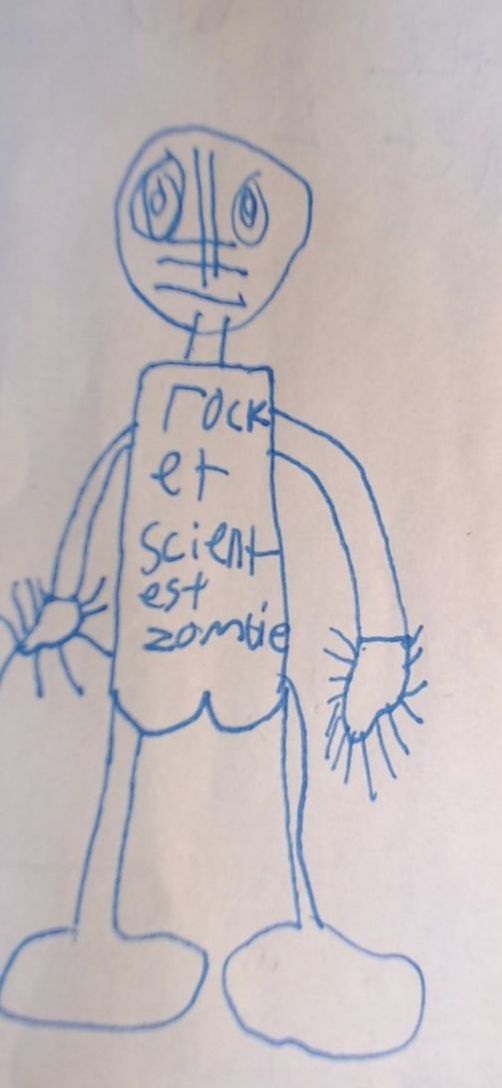

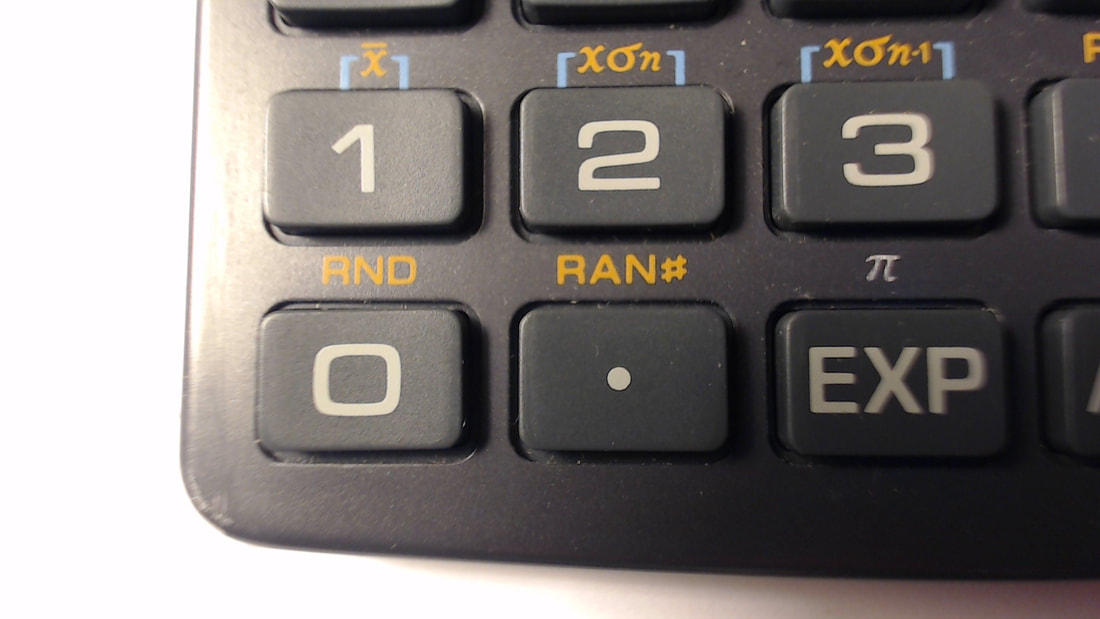
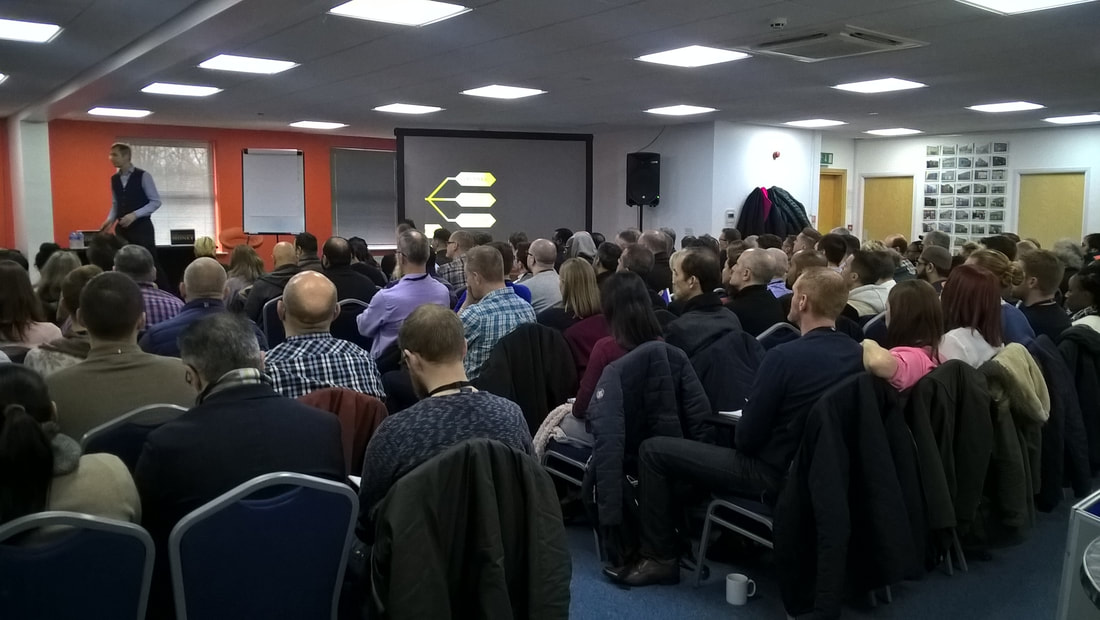
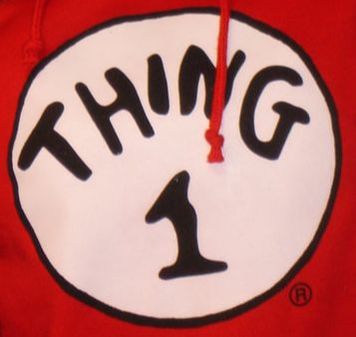

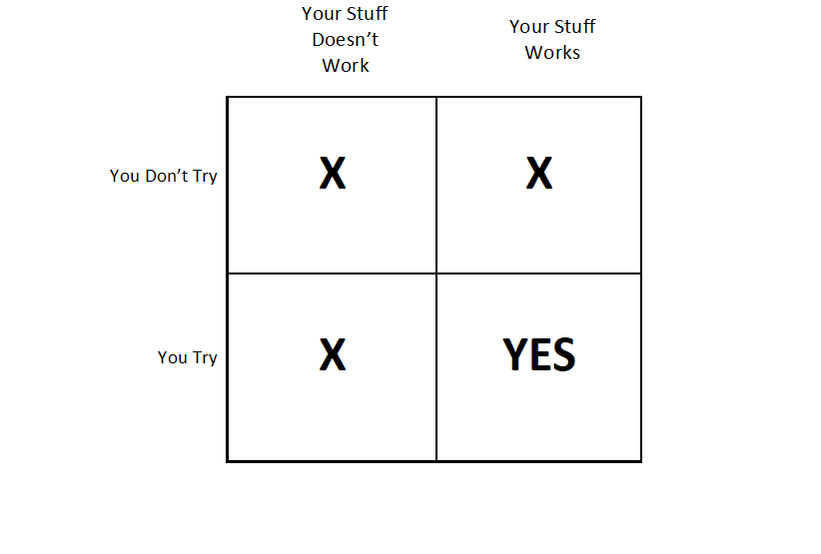
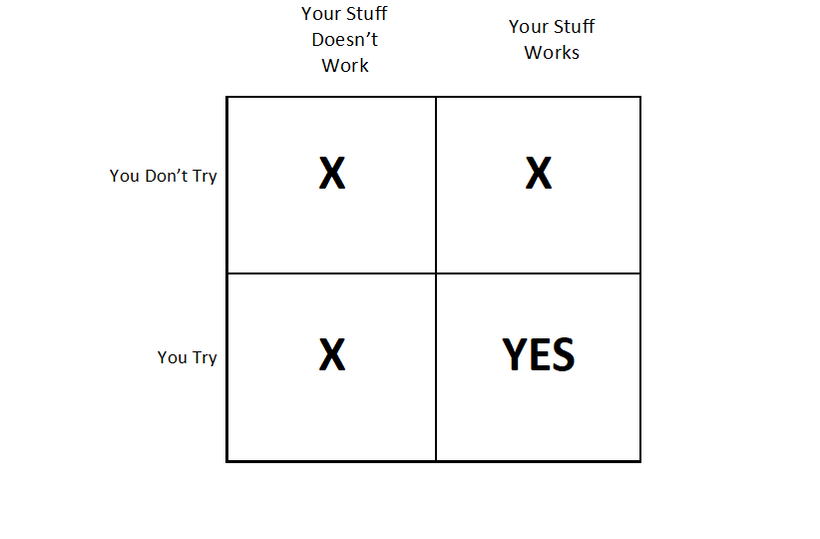

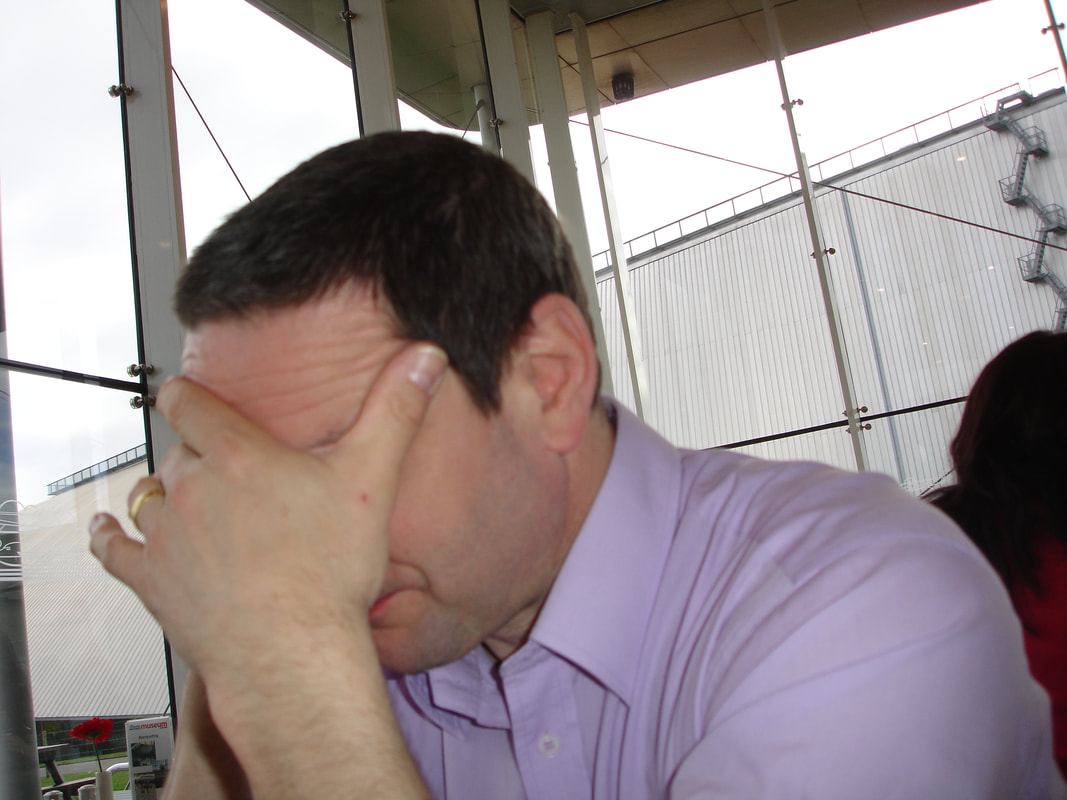




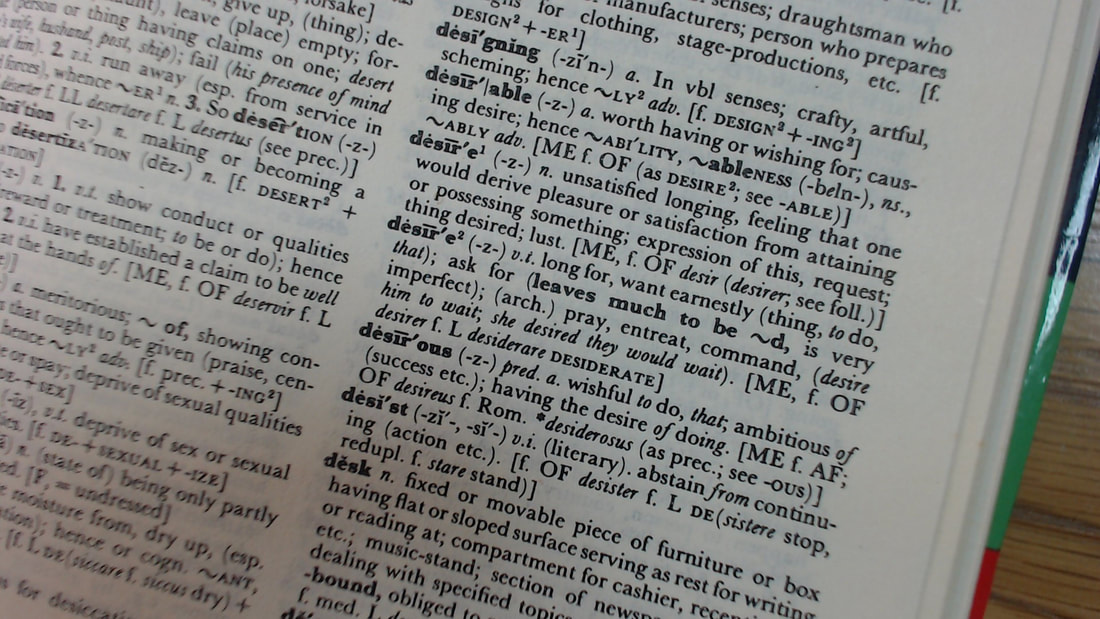



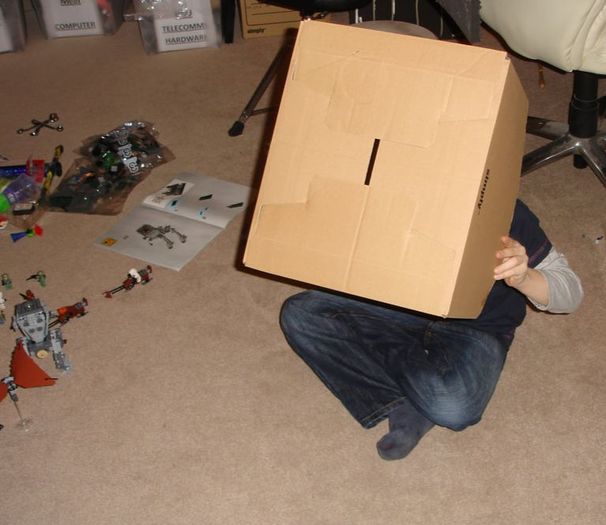
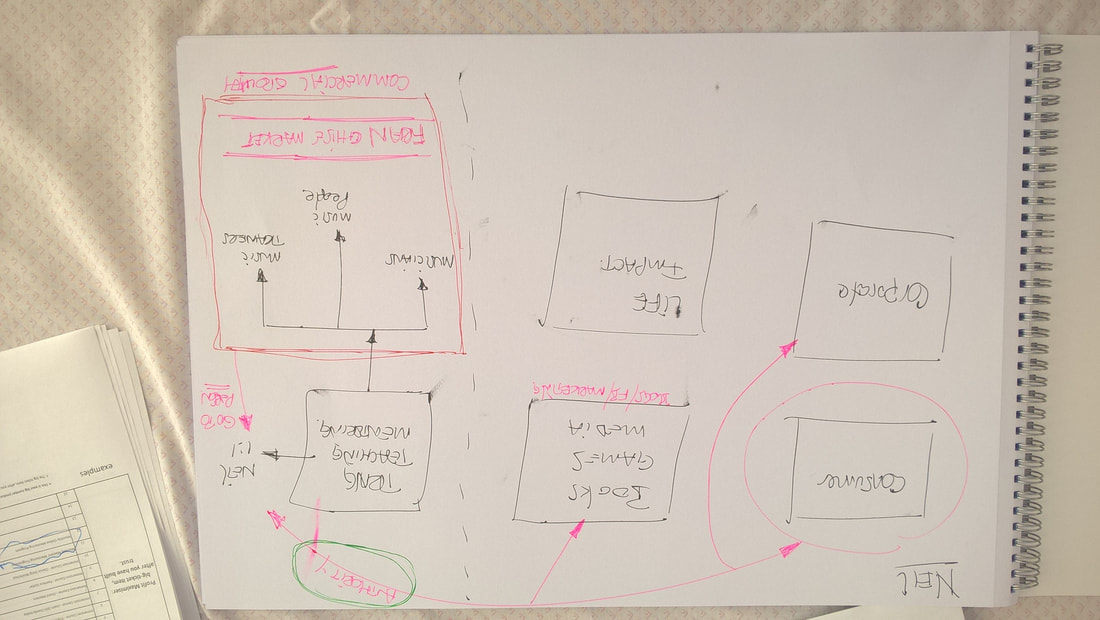
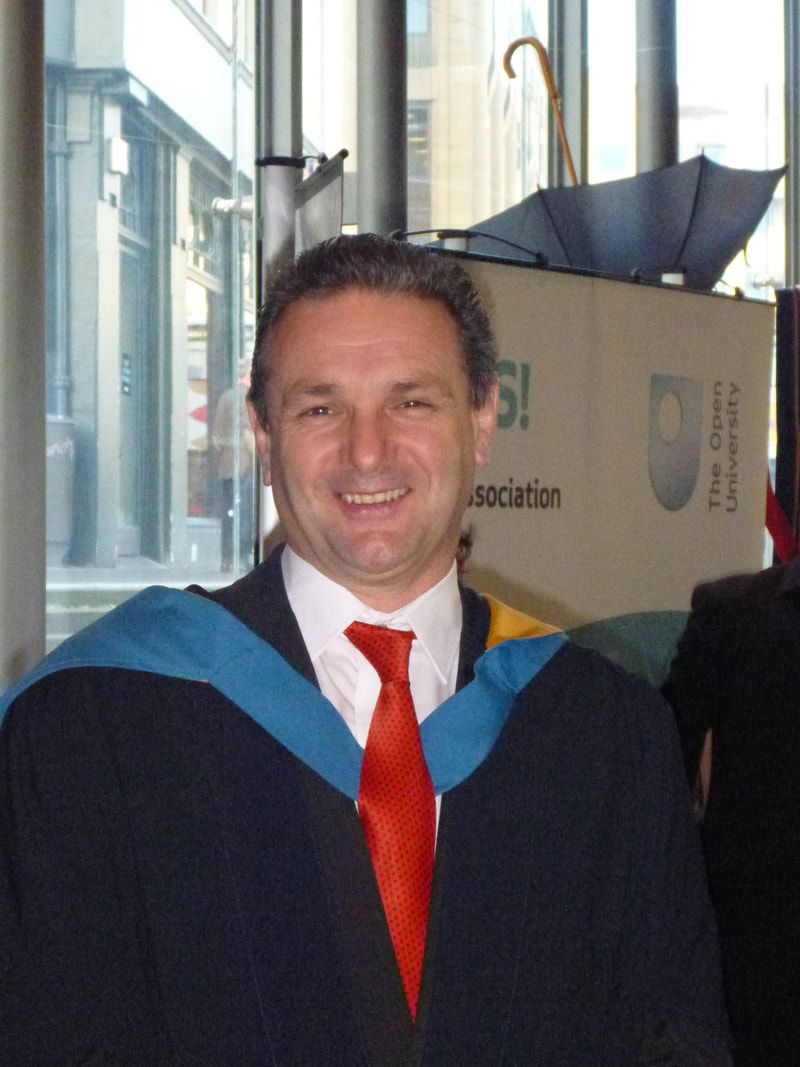
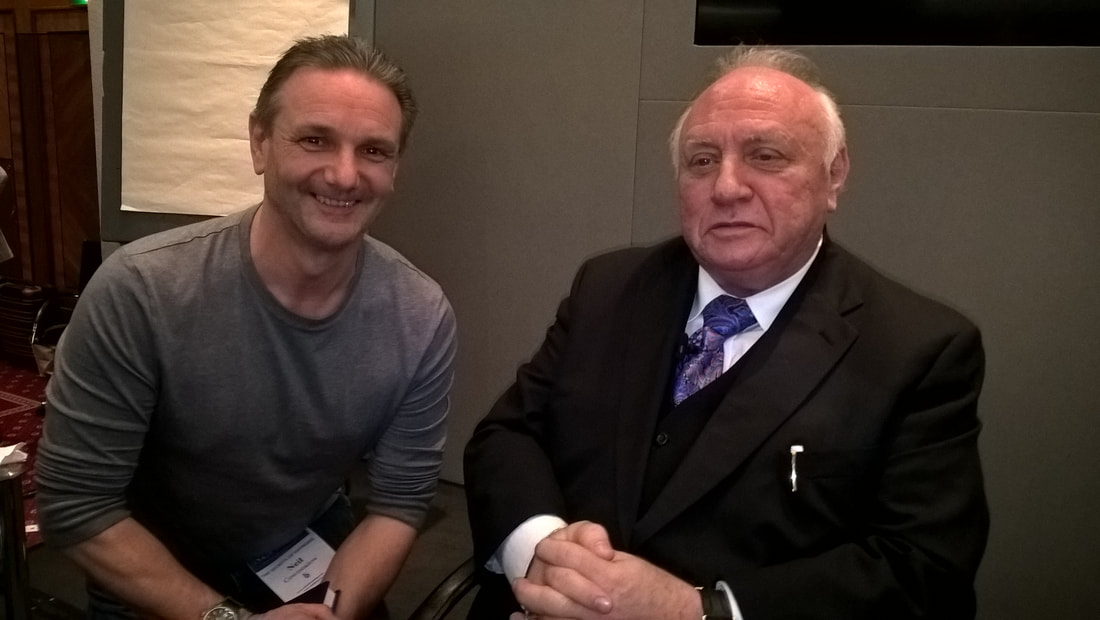

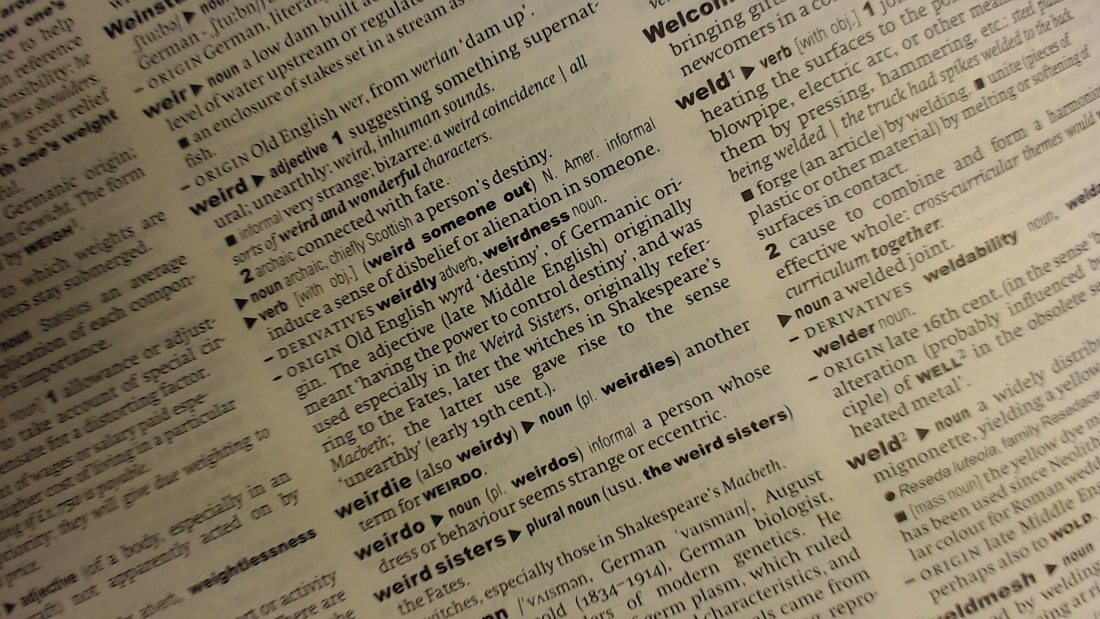
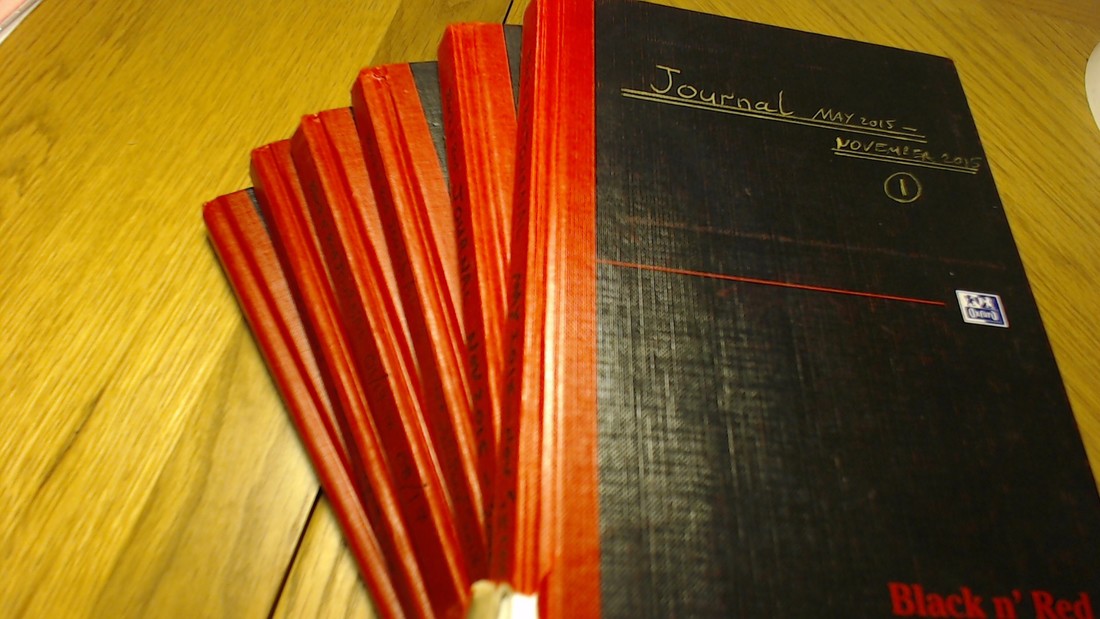

 RSS Feed
RSS Feed